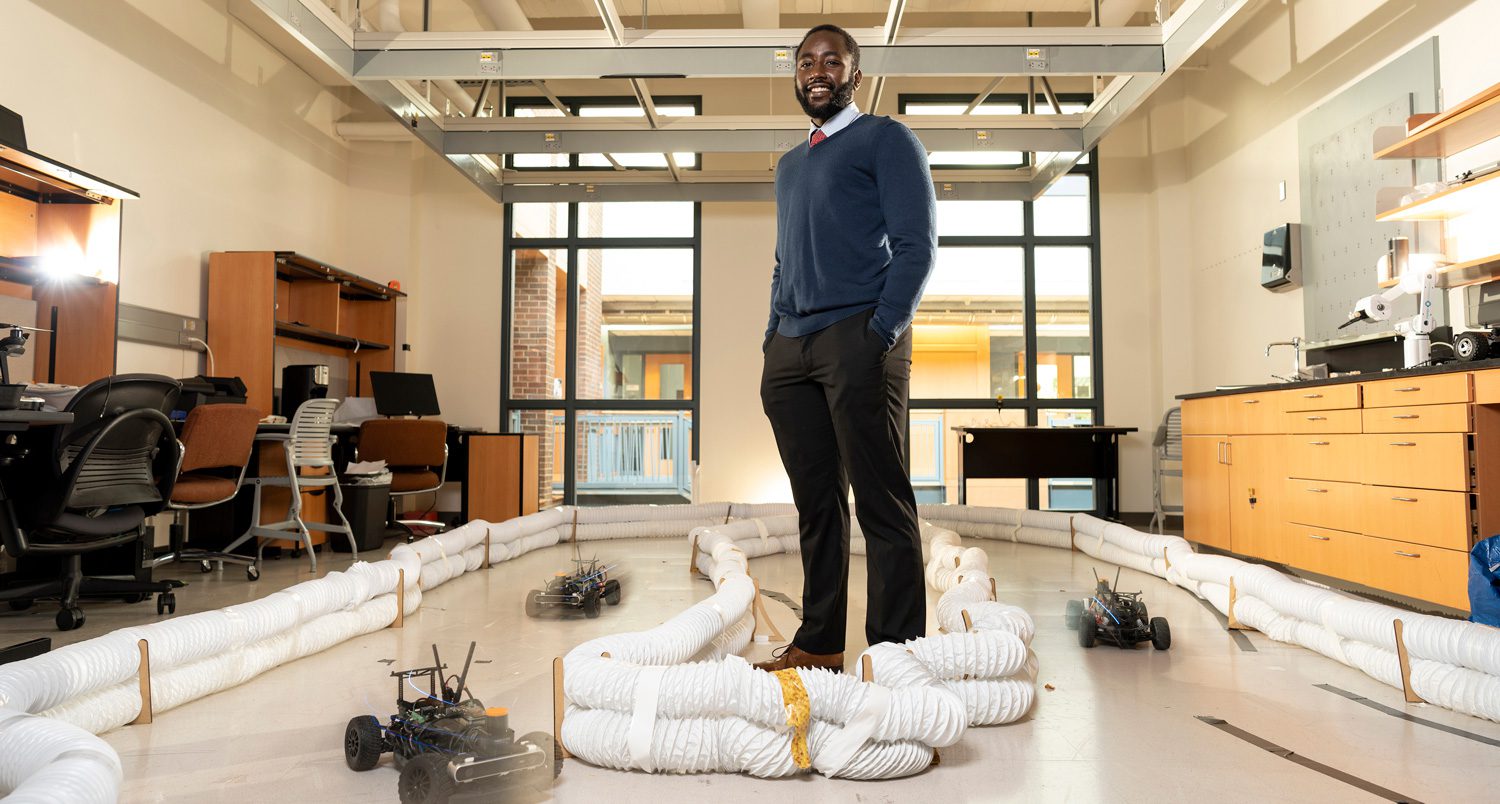
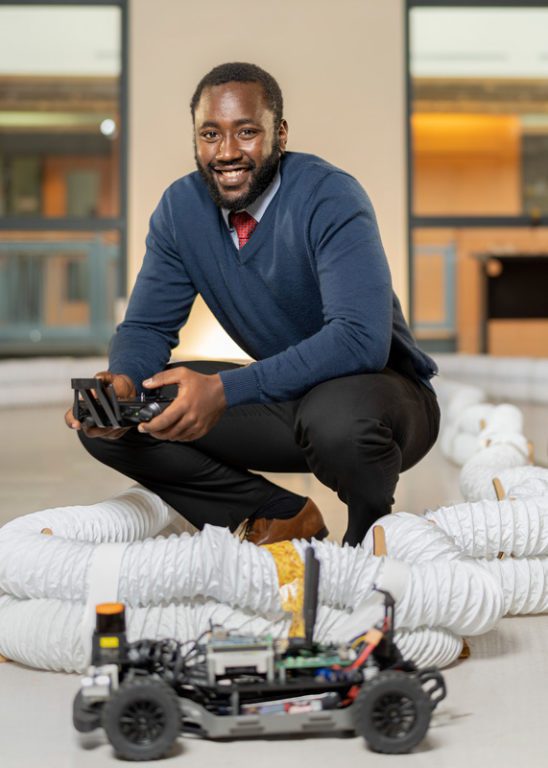
Patrick Musau ’17 at Vanderbilt’s School of Engineering with a 1/10-scaled remote-controlled car for use in research and in the F1/10 autonomous racing competition.
It’s safer to be unique. And Patrick Musau ’17 can help. His mission is to frustrate hackers, as more of our lives – our health care, our elections, even our doorbells – invite invasion.
Musau, who is pursuing a Ph.D. in electrical engineering at Vanderbilt, co-founded the company ARMS Cyber with twins and fellow engineers Brad and Tim Potteiger. By making our critical software systems enigmas now instead of patching things up after a breach, the researchers are turning a hacker’s hunt for weakness into a maddening Where’s Waldo.
Along the way, the trio is making cyber rules to live by: If you can hack a router, you can hack an airplane. If you can control something simple, you can bewitch something complex. We have common vulnerabilities because of the similarities in the underlying software that rules our lives.
“If you want to exploit my vulnerability, you have to guess where it is,” says Musau, who graduated from Furman with a double major in physics and computing and applied mathematics. “We aren’t fixing every vulnerability,” he says, “we’re just making each one very hard to find.”
The risks are all around us, hazards so enveloping as to numb us. A hacker can invade a pacemaker, shutting it down inside a patient’s chest or directing it to release a lethal dose of voltage. A CT scan, when infiltrated, can result in manipulated images and a deadly misdiagnosis. Hospital data, if breached, create blackmail concerns, from the malicious disclosure of someone’s HIV status to their antidepressant prescription or some other stigmatized treatment.
In other cases, the threat comes wrapped in steel instead of flesh.
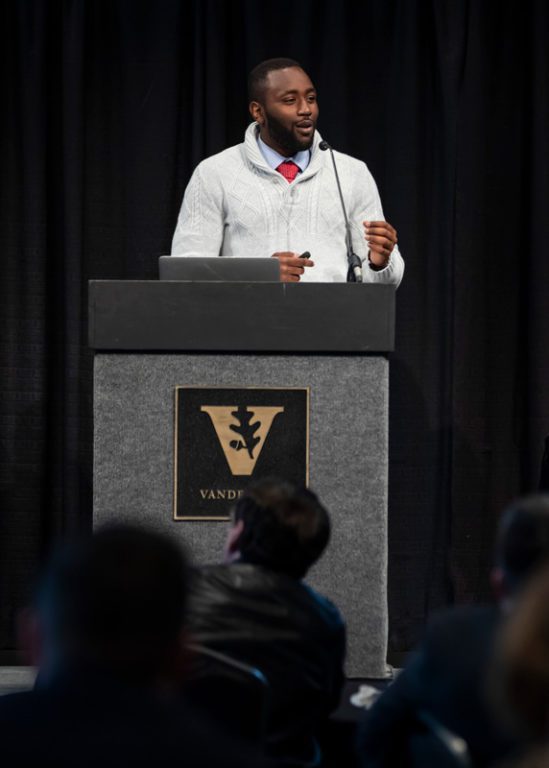
Musau during Vanderbilt’s 2020 entrepreneurship conference.
In 2015, cybersecurity researchers Charlie Miller and Chris Valasek remotely hacked a Jeep Cherokee. The feat sent a Wired journalist on a heart-leaping ride, and Chrysler recalled 1.4 million vehicles as a result of the pair’s work. It was an especially remarkable event, Musau says, because the researchers had to carefully pinpoint the specific vehicle they wanted to take over, after their work granted them access to a multitude of Jeeps. Where does that leave us?
“Instead of us just saying we’re going to fix every vulnerability there is, (co-founder) Brad’s idea is, ‘What if you could randomize every system in the world?’” says Musau. “So, just because a vulnerability will work on your computer, it may not work on mine.”
Meanwhile, ARMS Cyber is gathering strength.
In August, the company won first place and $20,000 in the 36|86: Student Edition Pitch Competition hosted by Launch Tennessee, a public-private partnership to boost the startup environment in the state. ARMS Cyber (Autonomous Resilient Management Solutions) won for its proactive approach to building defenses to protect against nation states, terrorist organizations and hacktivists.
Fiercely inquisitive from the start
As a child, Musau destroyed things.
The 5-year-old, living in Ethiopia at the time, followed his curiosity, while his beloved Uncle Simon, a pilot and tech enthusiast, encouraged him to investigate what makes things tick (or whir or flash or beep).
“My uncle has always been a huge influence,” says Musau, remembering how his mother’s brother would show him how to create new toys from the fresh wreckage of old ones, extracting motors, adding wires, batteries, straws and propellers. The child was as likely to be wielding a screwdriver as a crayon. Born in Rwanda to Lucy Musau, an administrative assistant for the African Union and eventually the United Nations, Musau moved around frequently during his early years. His mother’s job demanded regular moves across East Africa, which led her to enroll him, his younger brother and older sister in boarding school for stability.
“I would break my toys to see what was inside, like, ‘What is the motor in here?’” says Musau from inside the cowl of a bright blue hoodie.
A crystal chandelier floats like a jellyfish over his shoulder, part of the opulent, champagne-washed living room of his Zoom background.
“I’m very thankful for the childhood I had, probably one of the most loving ways to be brought up,” says Musau. “One of my biggest inspirations was my mom, to work at such a prestigious institution while maintaining a loving home.”
“Instead of us just saying we’re going to fix every vulnerability there is, (co-founder) Brad’s idea is, ‘What if you could randomize every system in the world?’”– Patrick Musau ’17
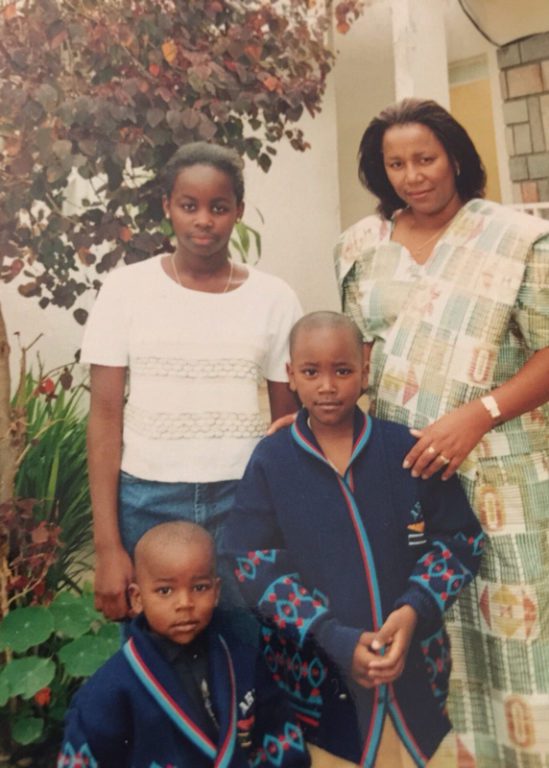
Patrick at about age 6 (center) with his mother, Lucy, sister, Mary, and brother, Kevin Musau, before they moved to Rwanda in 2002.
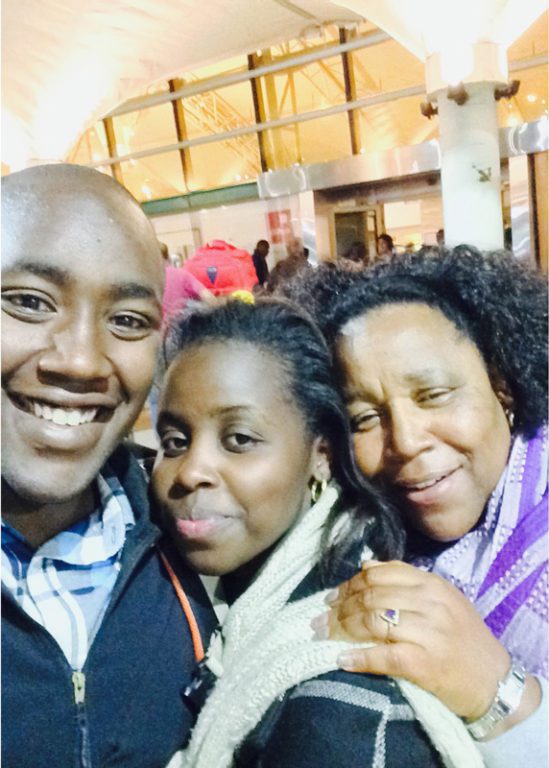
Patrick, with his sister and mother.
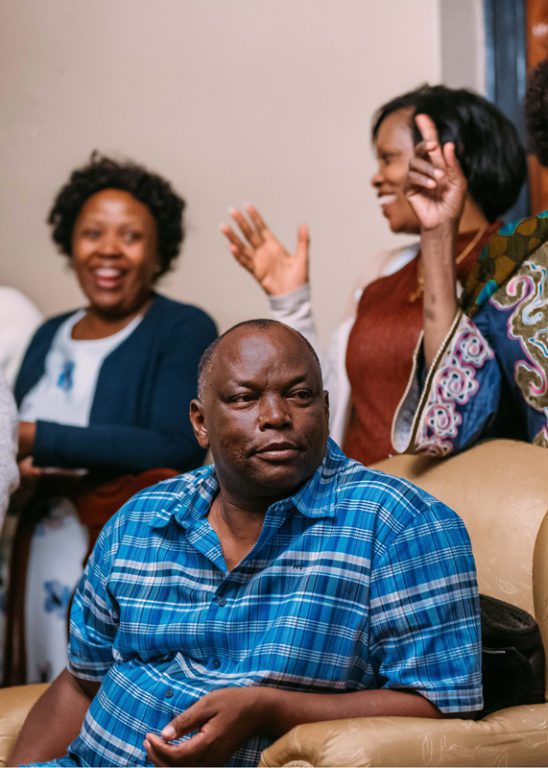
Patrick’s uncle, Simon Musau, pictured in the foreground during Patrick’s sister’s wedding.
He attended boarding school from the age of 9 through high school, developing a strong independence but also a deep tenderness for family and their precious time together.
“It taught me how to take care of myself,” he says. “Of course, there’s always struggles.”
‘The path through the world’
Musau visited the United States for the first time in 2004. He and his family landed in Kansas where they visited extended family. From there, they road-tripped to Manhattan.
Back home several years later, a high school guidance counselor at Rift Valley Academy in Kijabe, Kenya, told Musau: “If you get into Furman, you’re going to thank me every day because it’s one of the most beautiful campuses you’ll ever lay your eyes on.”
And so, in 2013, Musau moved from Kenya to Greenville, South Carolina, as a first-year Furman student. In the course of settling in to his new continent, Musau made his first trip to Walmart, dissolving momentarily into the fluorescent-lighted galaxy of endless stuff. The culture shock was real but brief.

Musau as a student at Furman during a rugby game with his teammates.
But he also brought some of his early life to South Carolina. Musau was captain of the Furman rugby team for four years, and he now plays with the Nashville Rugby Football Club.
“It’s one of the most enriching things I’ve found,” he says of the game, “with automatic access to community.”
“Patrick is not a student you forget. … He’s someone who can think out what the next step is, and can help direct the project in a good direction.” – Andrea Tartaro, Professor
But it is Musau himself who creates community, remembers Furman Professor of Physics William Baker. He describes his former student as “a universal mixer.”
Andrea Tartaro, associate professor of computer science at Furman, taught Musau for three classes and summer research.
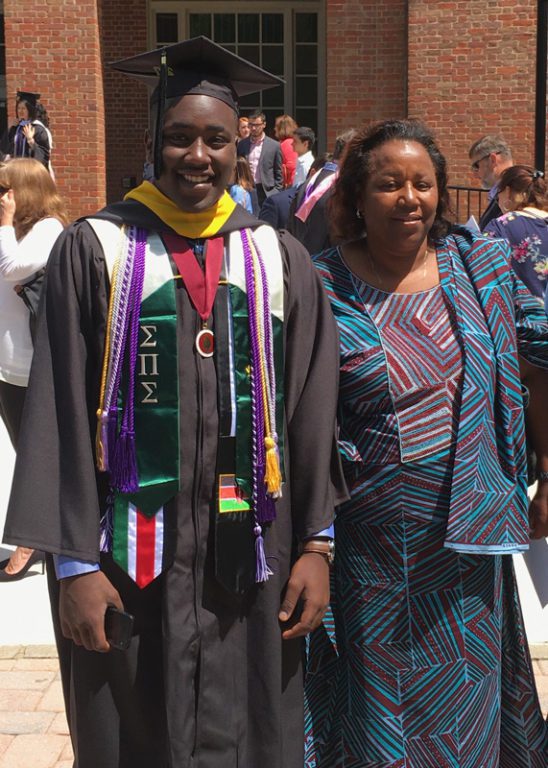
Pictured at Furman graduation with his mother, Lucy Musau.
“Patrick is not a student you forget. He’s one of the ones you remember long after he graduates,” she says. “He’s someone who can think out what the next step is and can help direct the project in a good direction.”
Baker, in the physics department, recalls Musau’s curiosity, insightfulness, storytelling talents and generous laugh.
“We would compare words (in Swahili and French) that I thought I knew, and he would correct me,” says the physics professor. “We had a lot of fun. He was serious about his work, but he wasn’t so serious that he was beaten down and he couldn’t enjoy life, which is ideal.”
And when it was time to discuss the future?
“When he would get serious, we would talk about what kind of careers would pay off. I reminded him it was a technological society,” says Baker, “and the path through the world was technology.”
Morgan Sykes contributed.


